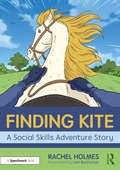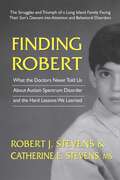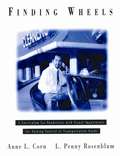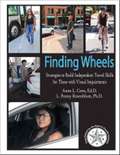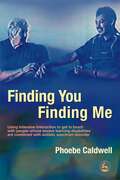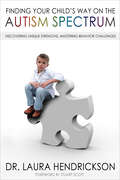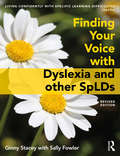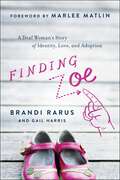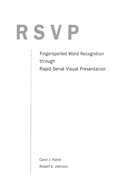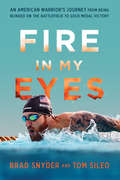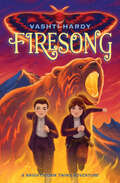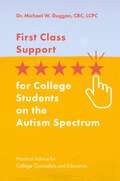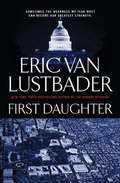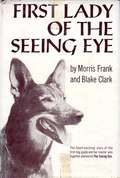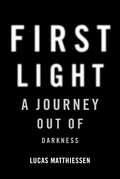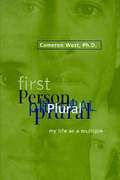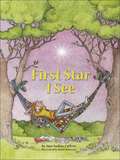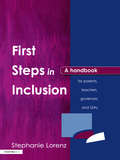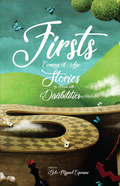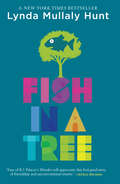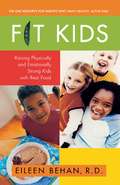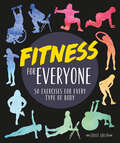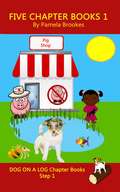- Table View
- List View
Finding Kite: A Social Skills Adventure Story (Adventures in Social Skills)
by Rachel HolmesThis choose your own adventure story is a unique, illustrated resource and a compelling mystery, focused on developing the social skills of children on the autistic spectrum. Trapped in Tudor England in 1535, in a world very different from their own, the reader must take on the role of the main character and work out why horses are mysteriously dying. Confronted by challenging social situations and decisions that will either help or hinder the narrative, they need to solve the mystery in order to get home.The story provides a springboard for children to test out different actions and to experience a range of possible consequences and pathways. Decisions the reader must make tackle challenges such as working together and overcoming conflict, processing information and managing emotions and anxiety.This book:● is an engaging interactive story to enable discussion and create moments for deeper thinking and self-reflection;● can be used either in small groups or 1:1 intervention;● links directly to worksheets from the accompanying teacher resource, providing a personalised development tool that can be flexible according to the child’s needs.Although created with girls in mind, positioning the reader as the main character allows all children to become fully immersed in the narrative. This is an invaluable resource to develop social skills and build confi dence among children aged 8–12.
Finding Robert: What the Doctors Never Told Us About Autism Spectrum Disorder and the Hard Lessons We Learned
by Robert J. Stevens Catherine E. Stevens, MSDiagnosed with attention deficit hyperactivity disorder, oppositional defiance disorder, and pervasive developmental disorder in the early 1990s, Robert Stevens was an exceptionally intelligent child who could not function in a mainstream environment. Being the &“problem child&” of every play group, sports league, and extracurricular activity he joined, Robert had no friends, no internal means of self-control, no &“off switch,&” and—as his parents, Robert and Catherine Stevens, were warned—perhaps no real future. Thinking it for the best, Robert&’s parents did what the experts told them to do. Despite having a remarkably high IQ, Robert was placed in a special education program, under a psychiatrist&’s care, and on several powerful medications, including Ritalin and Prozac. Unfortunately, nothing worked quite as intended, and Robert suffered from nearly every side effect these drugs had to offer.Robert&’s parents saw they were losing him. Witnesses to Robert&’s drastic mood swings and anxious displays, they did not know whether they were seeing their son or the results of the medications he was taking. While initially helpful, the special education class began to create its own world of problems, with Robert taking a step backwards for each step forward. Desperate, the Stevens family turned to holistic therapies. Amazingly, Robert began to show improvement. Wondering why their son&’s doctors had discouraged such strategies, Robert and Catherine started researching new approaches on their own. Using nontraditional approaches, Robert was found. By third grade, he was off all medications, attending a mainstream school, making friends, and simply being himself.Finding Robert chronicles one family&’s journey through the world of developmental disorders. It depicts the struggles faced, examines the decisions made, and offers a thorough analysis of the therapies utilized. Amid sadness and confusion, with strength and resolve, Robert and Catherine regained their son and undertook a mission to change the way we look at these conditions.
Finding Wheels: A Curriculum for Nondrivers with Visual Impairments for Gaining Control of Transportation Needs
by Anne L. Corn L. Penny RosenblumThis text comprises explanatory material, activities, and numerous case studies profiling individuals and their families. The goal is to help visual impaired adolescents come to terms with the practical difficulties, the emotional obstacles, and the serious consequences of their attitudes toward getting around. Annotation c. Book News, Inc., Portland, OR (booknews.com)
Finding Wheels: Strategies to Build Independent Travel Skills for Those With Visual Impairments
by L. Penny Rosenblum Anne Corn Ed.D.Young adults with visual impairments, who are largely the focus of Finding Wheels, have much to figure out about how they will get from place to place as they seek greater independence and autonomy. In the book, the authors have identified and put into very practical terms the many strategies that nondrivers and low vision drivers can employ. Whether it is driving a car with low vision aids, using public transportation, or negotiating a ride with others in a mutually beneficial way, Finding Wheels informs and empowers travelers to take charge of their own transportation strategies. Families and professionals alike will find this update of Finding Wheels to be the definitive resource on helping youth and young adults maximize their independence in meeting their transportation needs.
Finding You Finding Me: Using Intensive Interaction to get in touch with people whose severe learning disabilities are combined with autistic spectrum disorder
by Phoebe CaldwellPhoebe Caldwell's remarkable new book makes accessible for the first time the complex, intricate inner and sensory worlds of people whose learning disabilities are combined with autistic spectrum disorder and, often, difficult-to-manage behaviour. Based on many years of working with such people, many of whom have withdrawn into a world of their own, she explores the different sensory reality they experience, showing it to be infinitely more complex and varied than is widely understood. She introduces a practical approach known as Intensive Interaction, which uses the body language of such people - who have hitherto largely been regarded as unreachable - to get in touch with them, giving them a way of expressing themselves which shifts their attention from solitary self-stimulation to shared activity. The outcome is not only a marked improvement in behaviour and ability to communicate but, more important, many parents will say 'they are just much happier'. Covering not only the practical aspects of introducing this technique, but also the thinking behind it, this landmark book has much to say on behalf of a group that has in the past largely been denied a voice, and will open new avenues for both practice and research. It is invaluable for parents, carers, and all who work with this group.
Finding Your Child's Way on the Autism Spectrum: Discovering Unique Strengths, Mastering Behavior Challenges
by Dr. Laura HendricksonIt seems that nearly everyone knows a family with an autism spectrum child. Most recent figures suggest that the prevalence of all autism spectrum disorders in the United States is an astonishing 1% of the population in the United States, translating to twelve million parents and grandparents that are seeking answers. There are many books available on how to cure an autistic preschooler, but none on how to raise one to adulthood. These promised cures raise parents' hopes, but most parents will find that they are dealing with a lifelong challenge no matter what they do. Dr. Laura Hendrickson is a trained psychiatrist, biblical counselor—and the mother of an autistic child. She understands the struggles parents face as they try to communicate with their autism spectrum child and manage behavior challenges. With an approach that is grounded in a deep understanding of the challenges those caring for autism spectrum children face, Finding Your Child's Way on theAutism Spectrum gives the reader sound, practical tools for understanding how to guide an autism spectrum child to function more fully as the person God created them to be.
Finding Your Child's Way on the Autism Spectrum: Discovering Unique Strengths, Mastering Behavior Challenges
by Dr. Laura HendricksonIt seems that nearly everyone knows a family with an autism spectrum child. Most recent figures suggest that the prevalence of all autism spectrum disorders in the United States is an astonishing 1% of the population in the United States, translating to twelve million parents and grandparents that are seeking answers. There are many books available on how to cure an autistic preschooler, but none on how to raise one to adulthood. These promised cures raise parents' hopes, but most parents will find that they are dealing with a lifelong challenge no matter what they do. Dr. Laura Hendrickson is a trained psychiatrist, biblical counselor—and the mother of an autistic child. She understands the struggles parents face as they try to communicate with their autism spectrum child and manage behavior challenges. With an approach that is grounded in a deep understanding of the challenges those caring for autism spectrum children face, Finding Your Child's Way on theAutism Spectrum gives the reader sound, practical tools for understanding how to guide an autism spectrum child to function more fully as the person God created them to be.
Finding Your Voice with Dyslexia and other SpLDs
by Ginny Stacey Sally FowlerFinding Your Voice with Dyslexia and other SpLDs is an essential guide to living with dyslexia and other specific learning difficulties (SpLDs). The book provides readers with a practical guide to expressing and developing ideas and feelings. Uniquely designed for dyslexic/ SpLD readers, this book discusses how individual people function and will help readers to: •understand how they think•know what they can do to maintain clear thinking•know how they can positively contribute to any situation in which they find themselves.When people with SpLD find their voice, they gain the self-esteem and confidence to tackle all elements of life (study, employment, general living) and to negotiate sucessfully with those around them. The book contains stories, insights, examples, tips and exercises, presented in a user-friendly way throughout. The book has also been designed for non-linear reading and each chapter includes a ‘dipping-in’ section to guide the reader. The book does not have to be read as solid, continuous text from start to finish: it can be read more like a travel guide.As well as providing vital assistance to people with dyslexia and other specific learning difficulties, this book will benefit anyone supporting, living or working with dyslexic/ SpLD people by helping them to understand more about the dyslexic/ SpLD world.
Finding Zoe: A Deaf Woman's Story of Identity, Love, and Adoption
by Brandi Rarus Gail HarrisAt just a few months old, Zoe was gradually losing her hearing. Her adoptive parents loved her—yet agonized—feeling they couldn't handle raising a Deaf child. Would Zoe go back into the welfare system and spend her childhood hoping to find parents willing to adopt her? Or, would she be the long-sought answer to a mother's prayers? Brandi Rarus was just 6 when spinal meningitis took away her hearing. Because she spoke well and easily adjusted to lip reading, she was mainstreamed in school and socialized primarily in the hearing community. Brandi was a popular, happy teen, but being fully part of every conversation was an ongoing struggle. She felt caught between two worlds—the Deaf and the hearing. In college, Brandi embraced Deaf Culture along with the joys of complete and effortless communication with her peers. Brandi went on to become Miss Deaf America in 1988 and served as a spokesperson for her community. It was during her tenure as Miss Deaf America that Brandi met Tim, a leader of the Gallaudet Uprising in support of selecting the university's first Deaf president. The two went on to marry and had three hearing boys—the first non-deaf children born in Tim's family in 125 years. Brandi was incredibly grateful to have her three wonderful sons, but couldn't shake the feeling something was missing. She didn't know that Zoe, a six-month-old Deaf baby girl caught in the foster care system, was desperately in need of a family unafraid of her different needs. Brandi found the answer to her prayers when fate brought her new adopted daughter into her life. Set against the backdrop of Deaf America, Finding Zoe is an uplifting story of hope, adoption, and everyday miracles.
Fingerspelled Word Recognition through Rapid Serial Visual Presentation
by Carol J. Patrie and Robert E. JohnsonRSVP can be used in the classroom or for self-study. Learning and practicing this extensively researched approach is the key to unlocking the mystery of understanding fingerspelling. [Carol J. Patrie, Robert E. Johnson; (2011) Book: 185 pages; soft cover; coil bound, CD-ROM, DVD: 187 minutes; no audio; Mac OS X 10.6; PC Windows 7] Item not returnable once opened. The book explains the form and function for the types of fingerspelling: careful, rapid and lexicalized.
Fire in My Eyes: An American Warrior's Journey from Being Blinded on the Battlefield to Gold Medal Victory
by Brad Snyder Tom Sileo<P>"I am not going to let my blindness build a brick wall around me. I'd give my eyes one hundred times again to have the chance to do what I have done, and what I can still do."-Brad Snyder speaking with First Lady Michelle Obama <P>On the night Osama bin Laden was killed, US Navy Lieutenant Brad Snyder was serving in Afghanistan as an Explosive Ordnance Disposal officer with SEAL Team Ten. When he learned of SEAL Team Six's heroics across the Pakistani border, Brad was thankful. Still, he knew that his dangerous combat deployment would continue. <P>Less than five months later, Brad was engulfed by darkness after a massive blast caused by an enemy improvised explosive device. Suddenly Brad was blind, with vivid dreams serving as painful nightly reminders of his sacrifice. <P>Exactly one year after losing his sight, Brad heard thousands cheer as he stood on a podium in London. Incredibly, Brad had just won a gold medal in swimming at the 2012 Paralympic Games. <P>Fire in My Eyes is the astonishing true story of a wounded veteran who refused to give up. Lieutenant Brad Snyder did not let blindness build a wall around him-through tenacity and courage, he tore it down.
Firesong: A Brightstorm Adventure (Brightstorm Twins #3)
by Vashti HardyIn this spirited third Brightstorm adventure, the twins journey north to protect the legendary earth-bear and to discover their family’s hidden history. Arthur and Maudie Brightstorm are back home in Lontown and finally settling in after their exhilarating—and secret—adventures in Erythea. Maudie’s sky-ak invention is a hit, and Harriet has just announced that she will share her sky-ship’s hydroelectric technology. But tensions are brewing. Pitch is becoming more and more difficult to mine, and the existence of super-sapient creatures on other continents threatens how the Explorers see themselves in the natural order of the world. When Arthur and Maudie begin hearing a strange song summoning them north—a song only they can hear—they know there’s an adventure waiting for them that may change the lives of everyone in the Wide. As the crew of the Aurora prepares for their trip, they’re joined by new members and old friends. But they’re not the only sky-ship journeying northward to uncover the region’s secrets. . . . Return to Vashti Hardy’s “marvelously imagined” world (Publisher's Weekly) in this sweeping and propulsive new addition to the Brightstorm series.
First Class Support for College Students on the Autism Spectrum: Practical Advice for College Counselors and Educators
by Michael W. DugganCollege students with autism can face many difficulties during the transition from high school to further education and beyond. Highlighting the various everyday issues that may arise, this book shares practical advice for supporting students on the autism spectrum and helping them to succeed not only academically, but also socially and emotionally. From supporting students with their relationships, to dealing with anxiety and managing independent living, this book covers a breadth of topics. It considers the impact of teaching expectations in higher learning on general adult life, and how to counsel students with autism on academic issues. The author also examines his many years of experience as a community college counselor, sharing the mistakes he has made and the lessons learned, to outline what makes a good counselor and how to take specific steps to ensure success for students with autism in all aspects of college life.
First Daughter (Jack McClure Series #1)
by Eric Lustbader Eric Van Lustbader<P>Jack McClure has had a troubled life. His dyslexia always made him feel like an outsider. He escaped from an abusive home as a teenager and lived by his wits on the streets of Washington, D.C. It wasn't until he realized that dyslexia gave him the ability to see the world in unique ways that he found success, using this newfound strength to become a top ATF agent. <P>When a terrible accident takes the life of his only daughter, Emma, and his marriage falls apart, Jack blames himself, numbing the pain by submerging himself in work. Then he receives a call from his old friend Edward Carson. Carson is just weeks from taking the reins as president of the United States when his daughter, Alli, is kidnapped. Because Emma McClure was once Alli's best friend, Carson turns to Jack, the one man he can trust to go to any lengths to find his daughter and bring her home safely. <P>The search for Alli leads Jack on a road toward reconciliation... and into the path of a dangerous and calculating man-- someone whose actions are as cold as they are brilliant, and whose power and reach are seemingly infinite. <P>Faith, redemption, and political intrigue play off one another as McClure uses his unique abilities to journey into the twisted mind of a stone-cold genius who is constantly one step ahead of him. Jack will soon discover that this man has affected his life and his country in more ways than he could ever imagine.
First Lady of the Seeing Eye
by Morris Frank Blake ClarkThis story written by Morris Frank tells of how he trained in Switzerland with Buddy, the first Seeing Eye dog in America. Also tells of the very early history of The Seeing Eye in Morristown N.J. "Here are adventures that encompass thirty years and countless of miles: the fight to have dog guides admitted to restaurants and hotels, trains and planes; lectures and demonstrations all over the country; meetings with millionaires and Presidents--and with mountaineers and truckdrivers; and the humor and pathos of day-to-day events. The story begins on page 11. Un-numbered pages of photos, described and with captions, are between pages 64 and 65.
First Light: A Journey Out of Darkness
by Lucas MatthiessenA deeply felt literary memoir of one man&’s journey to redemption through vision loss, alcoholism, and the burden of a family legacy. Born to the author Peter Matthiessen, young Lucas traveled through life believing himself a disappointment to his famous father. From an early age, Lucas was exposed to the fanciful ideas of his parent&’s group of renowned bohemians as well as to their addictive pastimes. Within the shadow of his father&’s professional success came another source of darkness—the deterioration of Lucas&’s vision from retinitis pigmentosa. With blindness looming imminently, Lucas spirals downward, unsure of how to turn his degree in English Literature into a job and relying more and more on alcohol. As Lucas&’ drinking and eyesight worsen, so too do his interpersonal relationships and first career in publishing.First Light is a memoir of loss and learning. By pulling himself out of addiction and accepting that he will lose his sight completely, Lucas transitions from being &“the son of&” someone famous to an individual with his own strong sense of self. Despite continued personal tragedies, Lucas develops a second sight that is aimed inward, laying his triumphs and failures bare.With great honesty, Lucas Matthiessen creates a vivid portrait of self-destruction and rebirth, which is, above all, a vision of hope.
First Person Plural: My Life As a Multiple
by Cameron West"What the hell's happening to me? I feel possessed. I'm talking gibberish in the mirror and somebody else's voice is coming out of my mouth!" Cameron West was in his thirties, a successful businessman, happily married and the father of a young son, when he spoke these words. The "voice" belonged to Davy. the first of twenty-four distinct personalities to emerge over a period of several months and recount memories of horrific abuse that had been kept secret from West all his life. There was eight-year-old Clay, tense and stuttering; twelve-year-old Dusty, gentle and kind, but disappointed to find herself in the body of a middle-aged man: Bart, lightheaded and supportive; Leif, with his incredible focus and drive, who sometimes overwhelmed West with his demands, and nineteen other personalities-all with distinct characteristics, mannerisms, and memories. In first Person Plural, West offers a poignant account of his efforts to understand the workings of his fragmented mind and to heal his damaged spirit as he desperately hangs on to the slender thread that connects him to his wife, Rikki, his son, Kyle, and some semblance of a regular life. In addition to a spellbinding story. West provides rare and unprecedented insight into the fascinating workings of the mind of a multiple and his alters' coexistence with one another and with those "outside." heart wrenching. humorous, and ultimately hopeful. First Person Plural is a story that will make you stand in awe of the power of the mind to protect itself and cheer for West as he struggles to gain control of his life.
First Star I See
by Lynne Adamson Jaye Andras CaffreyA lively, enchanting story that wonderfully captures the daily ups and downs of being a child with attention deficit disorder through the adventures of Paige, a bright young girl whose inability to stay focused threatens to spoil her best efforts to win a school contest.
First Steps in Inclusion: A Handbook for Parents, Teachers, Governors and LEAs
by Stephanie LorenzWith more parents of disabled children seeking a mainstream place for their child, educational professionals are increasingly being faced with the task of making these placements successful. For many this can be their first experience of including a child with significant difficulties. This book is aimed at all those, be they parents, teachers, learning support assistants, SENCOs, school managers, governors or LEA officers who are charged with ensuring that inclusion is effective both for individual children and for schools as a whole.Each chapter looks at the practicalities from a different perspective, focusing on the questions that need asking, the work that needs to be carried out before the child starts and practical steps that each person in the network can take to make sure that all those concerned are happy, are learning effectively and are fully included in the life of the school.
Firsts: Coming of Age Stories by People with Disabilities
by Belo Miguel CiprianiTake a step back in time with some of the best writers with disabilities as they recount their first adventure, their first heartbreak, and the first time the unexpected treaded into their life. From body transformations to societal setbacks, to love affairs and family trauma, Firsts collects the most thought-provoking and exciting stories of our time by people with disabilities. Contributors include Nigel David Kelly, Kimberly Gerry-Tucker, Caitlin Hernandez, Andrew Gurza, and David-Elijah Nahmod.
Fish in a Tree
by Lynda Mullaly HuntA New York Times Bestseller <P> An emotionally-charged, uplifting novel that will speak to anyone who’s ever thought there was something wrong with them because they didn’t fit in. “Everybody is smart in different ways. But if you judge a fish by its ability to climb a tree, it will live its life believing it is stupid.” <P> Ally has been smart enough to fool a lot of smart people. Every time she lands in a new school, she is able to hide her inability to read by creating clever yet disruptive distractions. She is afraid to ask for help; after all, how can you cure dumb? However, her newest teacher Mr. Daniels sees the bright, creative kid underneath the trouble maker. With his help, Ally learns not to be so hard on herself and that dyslexia is nothing to be ashamed of. As her confidence grows, Ally feels free to be herself and the world starts opening up with possibilities. She discovers that there’s a lot more to her—and to everyone—than a label, and that great minds don’t always think alike. Schneider Family Book Award <BR> <BR>ALA Notable <BR> Global Read-Aloud Selection <BR> Crystal Kite Nerdy Book Award
Fit Kids
by Eileen BehanWhat and how you feed your family is an important issue for every child, no matter what their weight. Being overweight is a potentially serious health problem, but the overweight child who obtains family support, adopts a healthy eating pattern and exercises will be healthier than the normal child who does not receive such attention. Parents need to protect their children from advertising messages that tell them life will be better if they EAT, EAT, EAT. The goal of this book is to provide parents with tools they will need to guide their child to natural, gradual weight loss. These tools consist not only the facts about weight loss, but also what leads to success. So, do read this book if you wish to help your child and guide him or her towards a healthier way of life.
Fitness for Everyone: 50 Exercises for Every Type of Body
by Louise GreenAn exercise book for every "body"! No matter who you are or what body type you have, there's the perfect exercise waiting for you in this incredible exercise guide.You want to get into shape but feel limited by your weight, age, or ability. You want to workout but think that the exercises seem too difficult. You're looking for a workout routine that is simple, flexible, and effective. If this sounds familiar, then Fitness for Everyone is perfect for you!Inside the pages of this motivational exercise guide, you'll find:- 50 exercises that have modifications for every body type- Step-by-step instructions showing you how to do each exercise- 10 fitness routines for specific physical and mental benefits- Expert advice on how to incorporate fitness into your everyday lifePersonal trainer and fitness coach, Louise Green, is on a mission to change the way we think about exercise! Gone are the days of restricted eating programs and high-intensity training workouts that are unsustainable in the long term. This book will show you how fitness can benefit your daily life - no matter your shape, size, age, or ability.Whether you've been working out for years or you're just getting started, you'll find something new, challenging, and exciting throughout the pages of this self-help book. The exercises included have variations for people of all body types and abilities. From pushups and burpees to planking and tricep dips, you'll soon start saying, "I can do every exercise in this book!"Yes, You Can Exercise!This inspirational book will empower you, motivate you, challenge you, and change you. It's your opportunity to reconnect with mind and body to enjoy the many benefits of an active lifestyle, physically and mentally. All you have to do is turn the page and start your journey!
Five Chapter Books 1: Decodable Books for Phonics Readers and Dyslexia/Dyslexic Learners (DOG ON A LOG Chapter Book Collection #Volume 1)
by Pamela BrookesDecodable Chapter Books for Phonics Readers and folks with a Dyslexic Learning Style <P><P>This collection is the five books in Step 1 of the DOG ON A LOG Chapter book series. <P><P>The books are: The Dog On The Log</br> The Pig Hat</br> Chad The Cat</br> Zip The Bug</br> The Fish and The Pig <P><P>Individual books can also be purchased separately. <P><P>Sight Words:</br> a, are, be, does, go, goes, has, he, her, his, into, is, like, my, of, OK, says, see, she, the, they, to, want, you <P><P>Each book has about 260 to 470 total words <P><P>These are Step 1 Chapter books. <P><P>The DOG ON A LOG Books series are for phonics readers and folks with a dyslexic learning style. The words used reflect the inclusion of 1 to 3 new phonics rules in each step. There are five books at each step. <P><P>The chapter books are written in a chapter format with one picture in most chapters. They are longer, have more detail, and sometimes offer more complexity than the Let’s GO! Books. They’re great for practicing known and new phonics rules. They’re also just fun reading. <P><P>DOG ON A LOG Let’s GO! Books are shorter versions of DOG ON A LOG Chapter books. Let’s GO! books tell the same stories with about 8 pictures and only a few sentences per page. They’re perfect as an introduction to the new phonics rules or simply for fun reading for younger kids. <P><P>DOG ON A LOG Phonics Progression <P><P>Step 1: Consonants, primary sounds Short vowels Digraphs: ch, sh, th, wh, ck 2 and 3 sound words Possessive ‘s <P><P>Step 2: Bonus letters (f, l, s, z after short vowel) “all” –s suffix <P><P>Step 3: ang, ing, ong, ung, ank, ink, onk, unk <P><P>Step 4: Consonant Blends to make 4 sound words 3 and 4 sound words ending in –lk, -sk <P><P>Step 5: Digraph blends –nch to make 3 and 4 sound words Silent e, including "-ke" <P><P>Step 6: ild, old, olt, ind, ost <P><P>Step 7: 5 sounds in a closed syllable word plus suffix -s (crunch, slumps) 3 letter blends and up to 6 sounds in a closed syllable word (script, spring) <P><P>Step 8: Two syllable words with 2 closed syllables, not blends (sunset, chicken, unfit) <P><P>WATCH FOR MORE STEPS AND BOOKS COMING SOON <P><P>For information on upcoming books see dogonalogbooks.com or visit our Facebook page.
